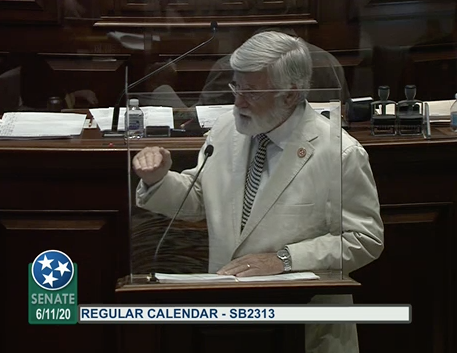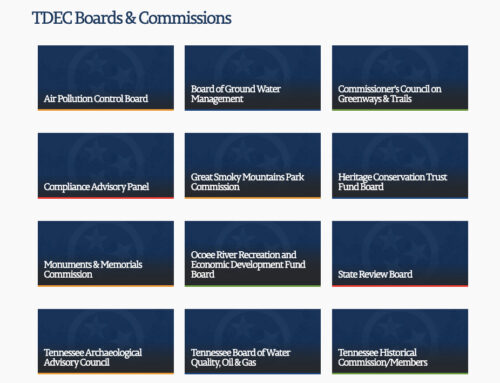
A bill that would prohibit the destruction of public records that are subject to a pending public records request was approved by the Senate on Thursday and is set for consideration on the House floor tonight.
The proposal, carried by state Sen. Todd Gardenhire, R-Chattanooga, and state Rep. Mike Carter, R-Ooltewah, plugs a gap in Tennessee law that drew attention last year in Hamilton County.
Last October, the county’s public records request coordinator asked for and got approval to destroy records that, unbeknownst to the county public records commission who approved it, were subject to a pending request from the Times Free Press.
The bill, Amendment 3 to SB 2313, passed by the Senate says that a “governmental entity shall not authorize destruction of public records … if the governmental entity knows the records are subject to a pending public records request submitted to the governmental entity.”
“Prior to authorizing the destruction of public records, a governmental entity shall contact the public records request coordinator to ensure the records subject to destruction are not subject to any pending public records request…”
The government entity would not liable for authorizing destruction if it contacted the records custodian and received notice from that custodian that the records were not subject to a request.
Violating the law would be subject to a civil penalty of $500.
The bill states that the proposed statute would not prohibit a custodian from disposing of records in accordance with an established records retention schedule or policy when they have no knowledge that records are subject to a pending request.
The bill also contains language that makes clear that following any procedures outlined in the new law “does does not absolve a public official from criminal liability for intentionally or knowingly altering or destroying a public record in violation of § 39-16-504.”
12-month retention would be required for responses to requests
In addition, the amended bill requires a minimum 12-month retention of written or electronic correspondence regarding a public record request. This retention requirement would include the requests for public records and responses by the entity to the requestor, but would not include the actual records that had been requested and provided to the requestor.
In the incident involving the Times Free Press, a news reporter had asked for all records requests and responses to those requests for a period of 12 months, minus the actual underlying records that were requested. The newspaper was attempting to examine the types of requests and types of responses given by the Hamilton County public records request coordinator, who is part of the Hamilton County Attorney’s office.
While going back and forth over the cost of obtaining access to these records, the Hamilton County’s public records request coordinator, Dana Beltramo, went to the Hamilton County Public Records Commission and requested authorization of a new policy to allow her to destroy records requests she receives, and her office’s responses to those requests, after 30 days. These were the very types of records that the newspaper had wanted to inspect.
Months later, as the newspaper was still in talks to try to get the records, the Hamilton County Attorney’s office told the newspaper that they had been destroyed per the new policy.
County Public Records commissions can authorize retention periods
At the local levels, county public records commissions are authorized to set polices on retention periods for county records. They can seek guidance from the County Technical Advisory Service (CTAS) on suggested retention policies for certain types of records, but are not bound by CTAS suggestions.
CTAS does not have a specific retention period suggestion for records requests, and responses to records requests. However, the Tennessee Public Records Commission has adopted a retention period of 5 years for state agency correspondence with the public about access to public records. (See Records Disposition Authorization No. SW35)
McNally thanks Gardenhire for work on access to public records
After the bill was approved by the Senate on a 30-0 vote, Lt. Gov. Randy McNally, R-Oak Ridge, thanked Sen. Gardenhire for his work on access to public records and open meetings.
“I really appreciate the torch you’ve carried for public records and open meetings,” McNally said.
Gardenhire also drew praise from state Sen. Bo Watson, R-Hixson, which is also part of Hamilton County.
“It shows the public we pull back the curtains when they ask and when they don’t ask.”




